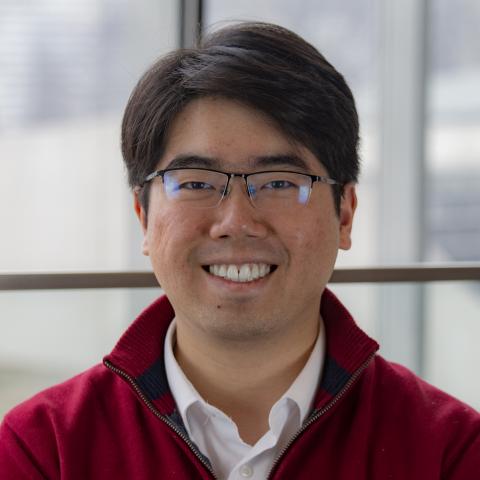Born and raised in Shanghai, Bill Ding says he knew attending Case Western Reserve University would be a great way to prepare him for medical school, while getting to know the culture in the United States. What he didn’t know is he’d be given multiple research opportunities as early as his first year, such as collaborating with health care workers in Uganda to identify and solve local health concerns.
Earlier this semester, we sat down with Ding, a junior biomedical engineering major, to ask him about his work in Uganda and his experiences at CWRU.
When did you first get involved in medical research at CWRU?
“In my first year I was taking an introduction to biomedical engineering course and I asked the professor for help with finding research opportunities for the summer. He connected me with a professor from the CWRU School of Medicine who was working on Chinese herbal medicine research and this professor was very happy to meet with me. As soon as we connected we hit it off.”
How did you meet the health care workers in Uganda?
“I’ve been involved in the Global Health Design Collaboration at Case Western Reserve for the last couple of years. We work with biomedical engineering faculty in the Sears think[box] to design prototypes to solve global health issues in Uganda. Typically, health care workers in Uganda have to travel a long distance to hospitals and small villages to give vaccinations. Because it’s really warm there all the time, my team developed a vaccine carrier to keep the vaccine cool. Every year we’ve updated the design of the carrier based on feedback. It’s really rewarding to have this opportunity.”
What other organizations are you involved in on campus?
“I’m the vice president of the Minority Association for Premedical Students. It’s a great opportunity for pre-meds from different backgrounds to share our experiences and hear from lecturers. For Black History Month we invited an African American physician from University Hospitals to speak about her pathway to medicine and how current students can gain experience in medicine.”
Did the culture on campus surprise you?
“Initially coming from China I thought I could contribute to the culture on campus by providing a different perspective when analyzing problems. Later on I realized the culture on this campus has given back to me as well. I’ve lived with people from other backgrounds and have learned so much from them.”
What advice would you give to new students?
“Embrace as many opportunities on campus as possible. I’ve made a lot of friends from other countries and different parts of the United States by taking advantage of joining organizations.”
Article Date
April 21, 2020


